*First Published on InfoMigrants
The war forced Ibrahim to flee Syria and seek refuge in Libya. But the militia there kidnapped him and demanded a ransom. Getting on the rusty fishing trawler and crossing the Mediterranean looked like a chance rather than a risk. Then the shipwreck happened.
“My living conditions in Syria were bad in every way,” said Ibrahim.
The civil war that has ravaged Syria since 2011 forced Ibrahim, 25, to drop out of school and look for a job. But things kept going from bad to worse.
“On my way to work, I sustained some injuries and was treated at home without anesthesia. Because the conditions were very bad, I couldn’t be taken to the hospital for treatment,” Ibrahim, who asked that only his first name be used, told InfoMigrants.
Barely recovered, Ibrahim fled Syria and went to Libya where he hoped to escape the war and bloodshed in his home country.
“In Libya, I was kidnapped and imprisoned for three months. The kidnappers (militias) demanded a ransom. But I was able to escape without paying the ransom. I had no refuge left except to go to the sea. My escape was very dangerous,” he said.
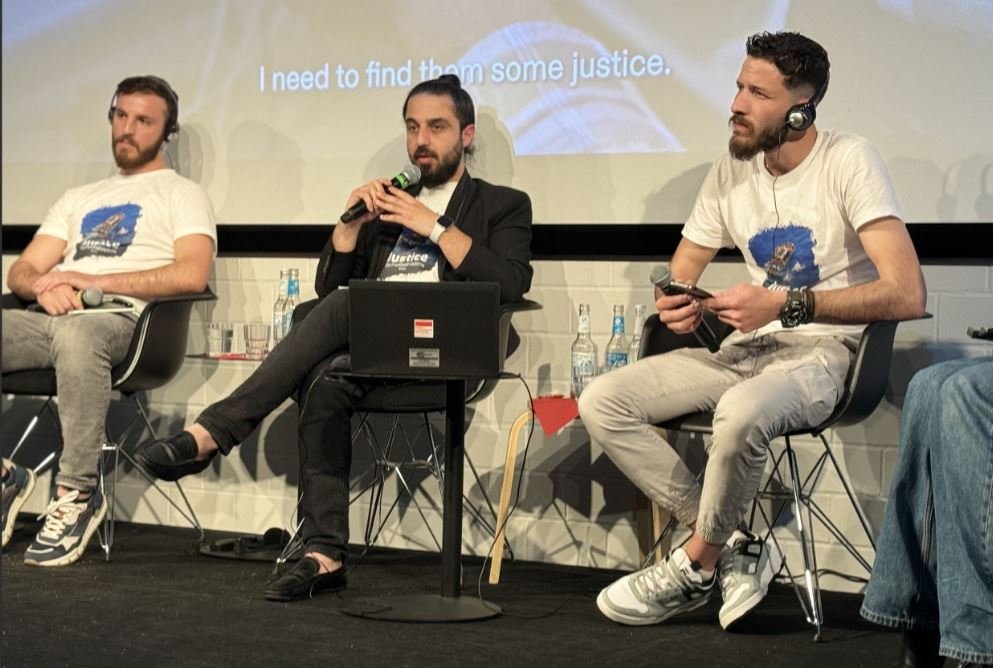
The only way out of Libya was to get on a fishing trawler. The boat, called the Adriana, had a holding capacity of 400 people. On June 10, 2023, together with three of his friends, Ibrahim boarded the Adriana from Tobruk, Libya. They were crammed together with an estimated 400-750 men, women, and children from Pakistan, Egypt, Palestine, and Syria.
At the time, for Ibrahim, getting on the Adriana looked like a chance rather than a risk.
But, on June 14, the Adriana capsized. Ibrahim and two of his friends were among the 104 survivors. Another of Ibrahim’s friends was one of the estimated 600 others who perished.
Also read: Two cousins crossed the Mediterranean. Only one made it.
Days of distress at sea
Satellite imagery, records of distress calls, survivor testimonies collected by the media, human rights groups, and search and rescue organizations have pieced together what transpired in the final hours before the Adriana capsized.
The first distress calls reportedly came on the morning of June 13. The Adriana had been at sea for days and water supplies on board had reportedly run dry. The conditions on board were rapidly deteriorating. There were dead bodies that were said to have been piling up alongside passengers who were sick. Engine problems added to the panic on board.
The New York Times reported that the passengers’ behavior descended into violence and desperation. Every movement threatened to capsize the ship lurching under the weight of more people than it was ever designed to carry.
Also read: Greece: Questions continue mounting over final hours before migrant ship sank
Global outrage
On June 14, the Adriana sank off the coast of Pylos, Greece. All of the 104 survivors were men. The women and children who were reported to have been located on the lower decks of the ship all perished. Eighty-two bodies were reportedly recovered but only 58 were identified. Over 500 people remain missing.
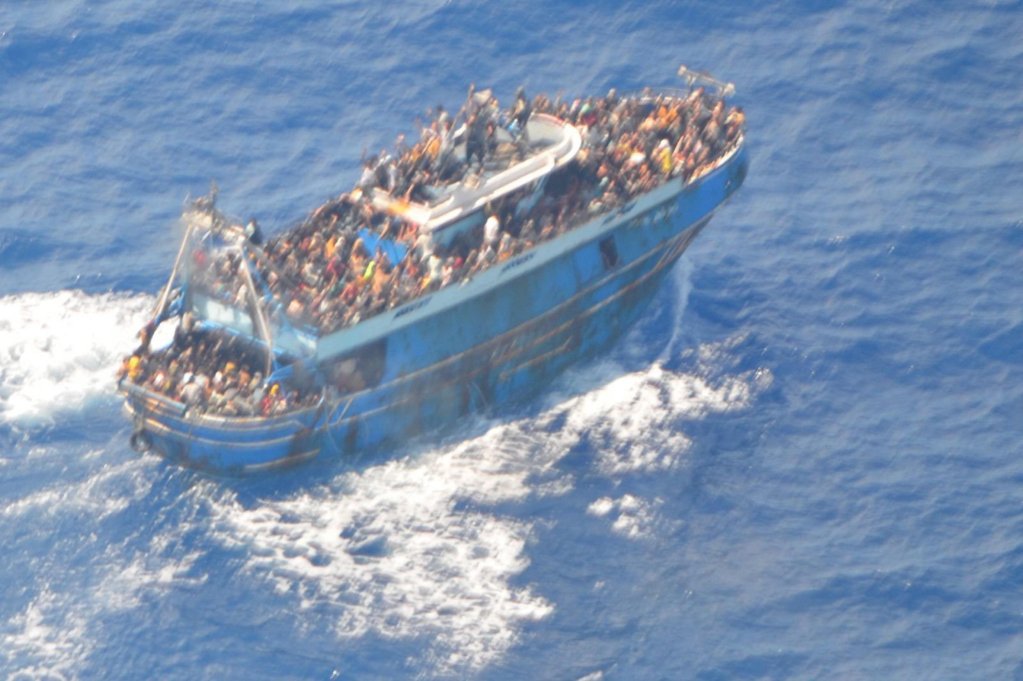
Global outrage led by the United Nations and rights groups descended on Athens for the Hellenic Coast Guard’s alleged history of sea rescue failures.
Human rights watchdog Amnesty International, along with other rights groups, reported that the Hellenic Coast Guard had delayed rescue operations and further alleged that attempts by a Greek Coast Guard patrol boat to tow the Adriana caused it to capsize.
Greek Coast Guard spokesman Nikos Alexiou consistently denied these allegations and said the passengers rejected assistance, adding that any effort to tow the overcrowded trawler or move hundreds of unwilling people onto nearby ships would have been too dangerous.
Also read: ‘Greek coast guard wanted to take us to Italy’, Pylos survivors
Life as an asylum seeker: Still very cold
Ibrahim was recognized as a refugee in Greece, but distrustful of authorities implicated in the sinking of the Adriana, he traveled to Germany where he applied for refugee status again. Ibrahim is currently housed in a remote reception area where he has been living for almost a year waiting for a decision.
“So far, nothing has changed in my life. There is neither anything positive nor negative, except that I have not yet received my residence permit in Germany. My wish is to live in peace and safety in a secure country without problems…It is still very cold. I cannot forget what has happened to me until now. I hope that my life will get better and that I can start a new life,” he said.
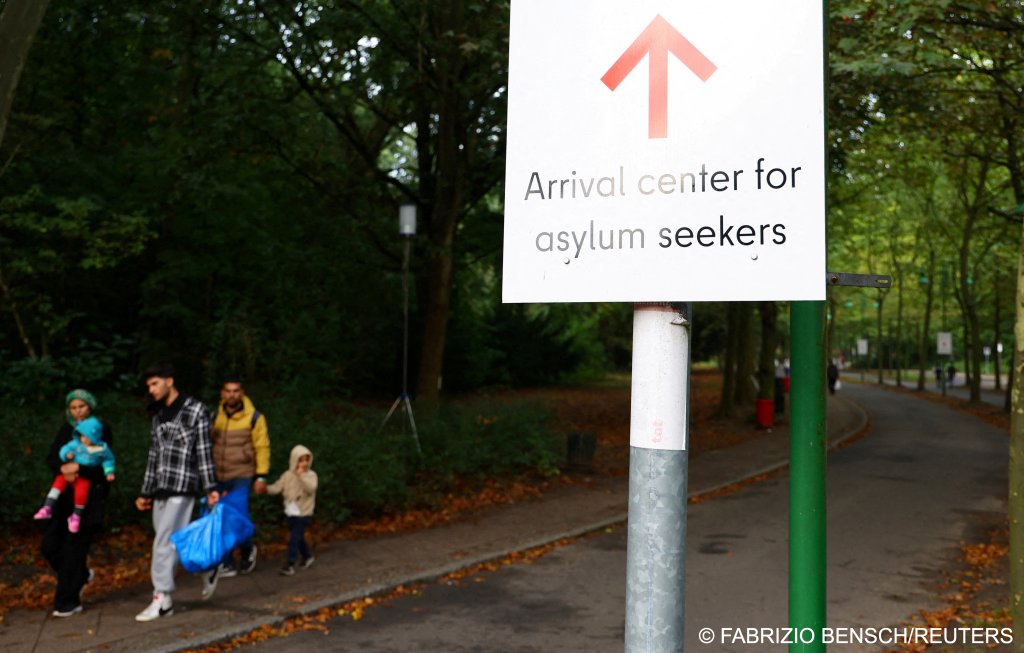
Andreas Meyerhöfer, a legal advisor at the human rights group, ProAsyl, has been working with Ibrahim and other Pylos survivors who are also living in Germany. Meyerhöfer told InfoMigrants that the long wait for asylum is excruciating.
Long wait for asylum
“Many of these reception camps are in remote areas and conditions are often very bad. Even if they have family in Germany, they are not allowed to live close to them. So they sit there in reception camps, alone. There is a lot of frustration, depression, and waiting. It is a life of uncertainty and limbo,” said Meyerhöfer.
While awaiting a decision on their refugee application, opportunities to move forward and live a normal life, such as getting a job, are put on hold. Additionally, the hope of bringing their families over and reuniting with them in Europe is put on hold until a protection status is granted.
In Germany, asylum seekers receive government support in the form of an allowance, but are not permitted to work within the first six months after arrival, as long as they are accommodated in a first reception camp.
“The support for refugees in Germany varies significantly by locality and is often inconsistent,” said Meyerhöfer.
Also read: Migrants back in custody, despite court acquittal
Survivors need support
The collective efforts of human rights groups like ProAsyl and legal aid organizations are needed, he thinks, to provide asylum seekers proper legal representation and access to essential psycho-social and mental health support.
“There has been a systematic failure to identify the Pylos survivors as vulnerable persons with special needs. You shouldn’t leave heavily traumatized people in reception camps for months–especially not severely traumatized people like the Pylos survivors. The conditions in these camps and lack of psychological support, that is all part of the systematic failure,” said Meyerhöfer.
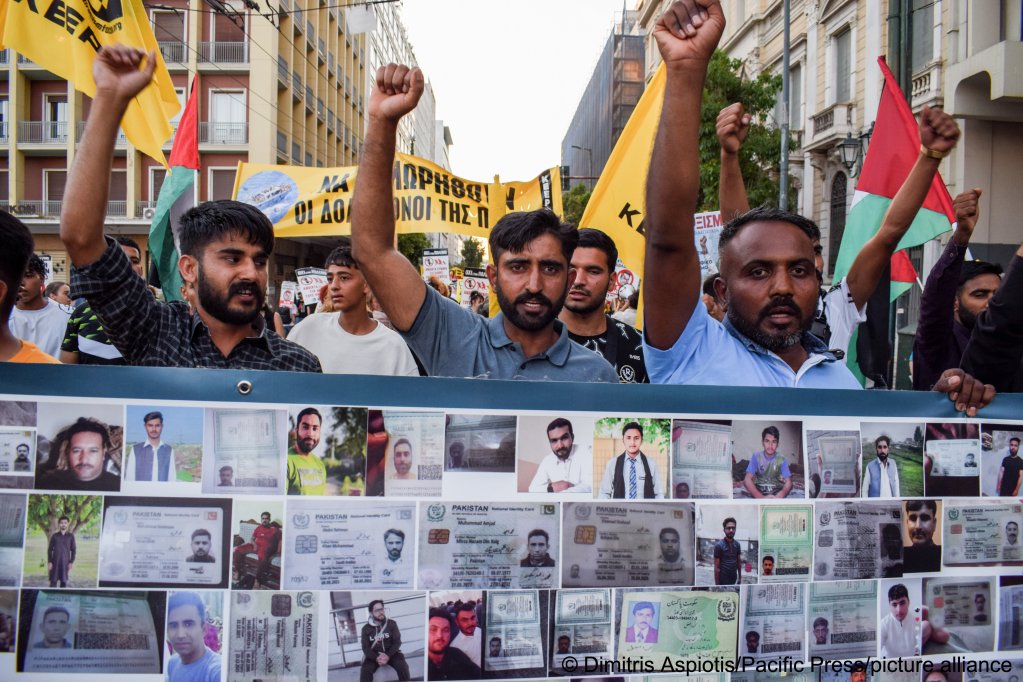
Months after the fatal shipwreck, Pylos survivors sued Greek authorities, accusing them of failing to protect the lives of those on board the ill-fated Adriana.
Also read: Pylos shipwreck: One year on
Commemorating and remembering
Ibrahim was one of the Pylos survivors who spoke at a gathering hosted by the Rosa Luxemburg Foundation in Berlin last month to commemorate the shipwreck. One of the survivors broke down in tears while recalling the past year’s events. He excused himself from the stage, no longer able to speak.
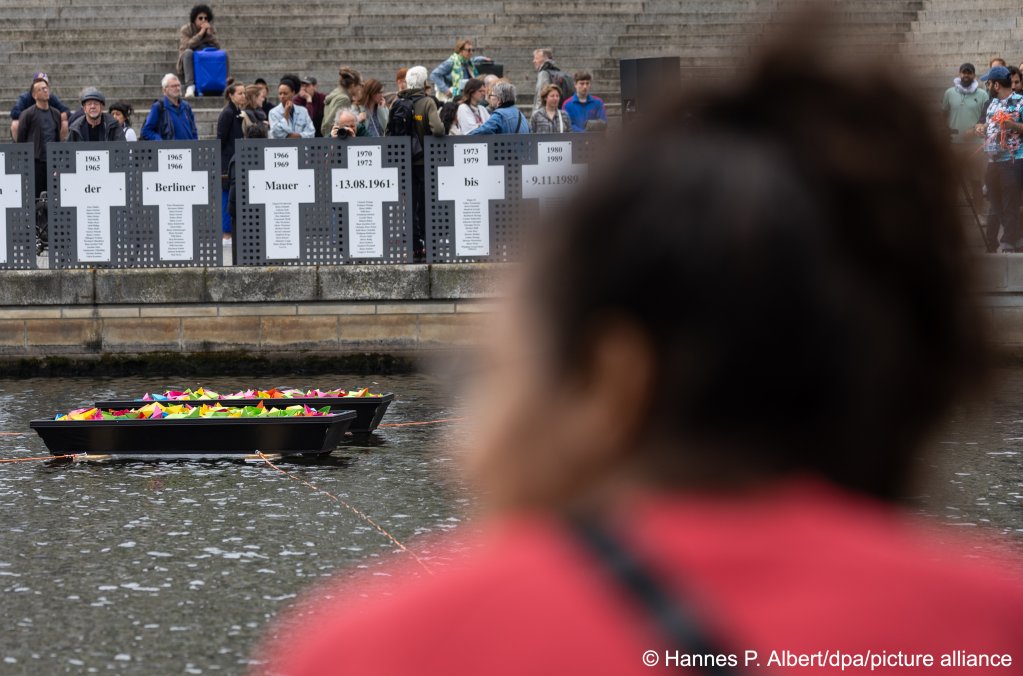
“Many of the survivors remain haunted. One once told me that he had held on to a little boy maybe 10-years-old and tried to save him from drowning, but he couldn’t,” said Meyerhöfer.
Together with some of the survivors, Pro Asyl organized a protest and memorial event in front of the German parliament in Berlin on the first anniversary of the shipwreck.
“One survivor said that what happened is not a memory. It is not the past; it is still the present for him. He still experiences the shipwreck every day,” said Meyerhöfer.
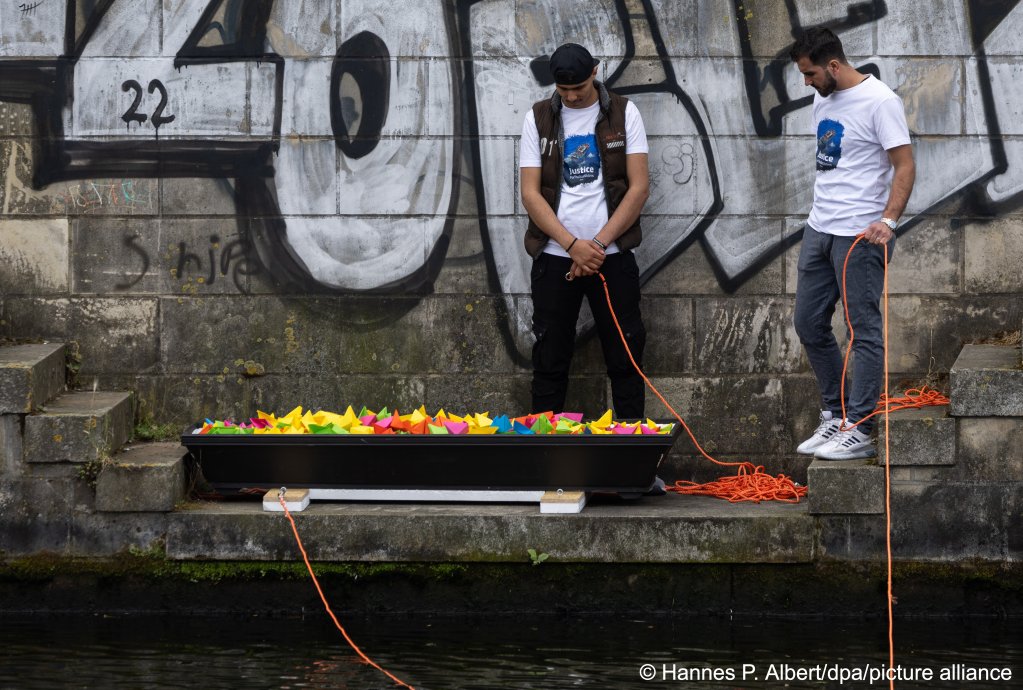
The commemoration of the shipwreck was a bittersweet moment. The preparation brought many of the survivors, now scattered across different areas, together. Being with others who had the same shared experience and being in the company of rights groups and supporters made them feel listened to and cared for, they said.
Meyerhöfer shared that one survivor told him, “On days like this, I feel like I am welcome in Germany. On all other days, I don’t have this feeling.”

